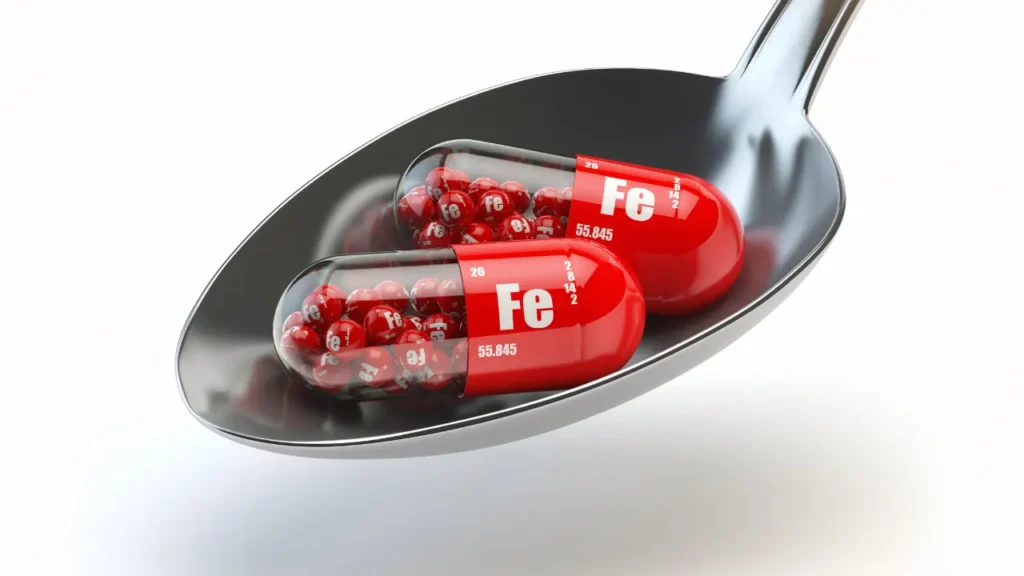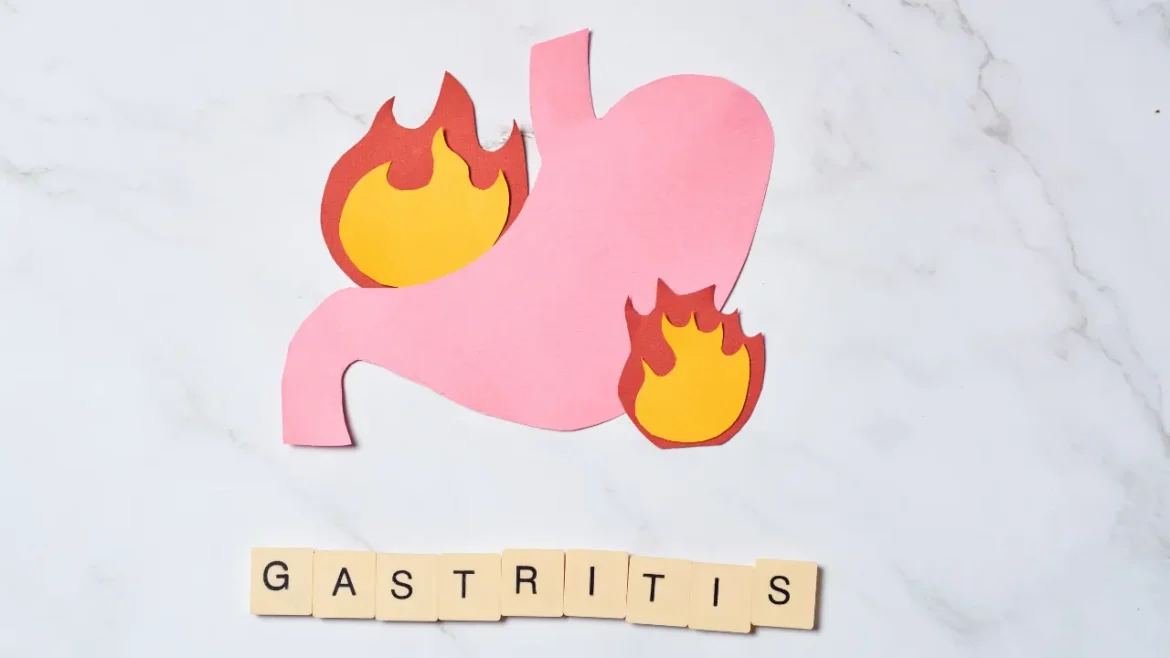Description
A kind of chronic gastritis known as autoimmune gastritis is brought about by an autoimmune response whereby the immune system of the human body unintentionally targets the parietal cells that line the stomach. Due to the immune reaction, these cells are destroyed, which reduces the generation of intrinsic factors and stomach acid, both of which are necessary for the absorption of vitamin B12. Anti-intrinsic factor antibodies (AIFA) and anti-parietal cell antibodies (APCA) are two examples of particular autoantibodies that are frequently found in patients with the illness.
Symptoms of autoimmune gastritis are frequently vague and include bloating, indigestion, and occasional nausea, as well as stomach discomfort. Symptoms such as exhaustion, shortness of breath, fatigue, and anemia may appear when the illness worsens as a result of iron and vitamin B12 shortages. Adenocarcinoma and carcinoid tumors of the stomach can also be more likely to form in those with long-term untreated autoimmune gastritis.
You May Also Like:
SARCOIDOSIS: DESCRIPTION, CAUSES, AND TREATMENT PROTOCOL
OLLY GOODBYE STRESS GUMMIES REVIEWED: A LEADING STRESS RELIEF PRODUCT
Autoimmune gastritis: Description, Causes, And Treatment Protocol is an original (HealthXWire) article.
Possible Causes
It is not entirely clear what causes autoimmune gastritis. The development of it is thought to be influenced by a mix of hereditary and environmental factors. Autoimmune gastritis may have a variety of reasons, including: –
Autoimmune Factors
An autoimmune reaction, wherein the immune system inadvertently attacks the parietal cells in the stomach lining, is what distinguishes autoimmune gastritis. Although the precise cause of this autoimmune reaction is still unknown, it is thought to be a result of both genetic predisposition and environmental variables.
Genetic Predisposition
Autoimmune disorders, like autoimmune gastritis, are considered to be more susceptible to certain genetic variants and inherited traits. A higher chance of acquiring autoimmune gastritis has been linked to particular gene variants, according to studies.
Environmental Triggers
People with a genetic susceptibility to autoimmune gastritis may experience environmental triggers or exacerbations of the condition. The H. pylori bacteria outbreak, which is frequently linked to gastritis, is one of these causes. Autoimmune gastritis may also be brought on by other illnesses, including bacterial or viral infections.
Dietary Factors
Despite the significance of dietary factors causing autoimmune gastritis remains uncertain, some dietary elements have been proposed as potential causes. These involve high-salt dietary habits, processed foods, and meals that contain nitrites or nitrates. To link dietary elements to the onset of autoimmune gastritis conclusively, additional research is required.
Hormonal Factors
Given that autoimmune gastritis affects more women than males, hormonal shifts or imbalances could impact how the ailment develops. Symptoms of autoimmune gastritis may develop or intensify due to hormonal changes during pregnancy, puberty, or menopause.
Exacerbating and Mitigating Factors
Smoking
Smoking may be linked to a higher risk of autoimmune gastritis development and can exacerbate symptoms. Additionally, it may worsen the stomach lining’s ability to recover and raise the danger of problems. Effective management of autoimmune gastritis depends on quitting smoking or minimizing exposure to indirect smoke.
Excessive Alcohol Consumption
Alcohol can worsen symptoms in people with autoimmune gastritis because it irritates their stomach lining and produces more acid. It is advised to either limit or forego alcohol entirely.
Nonsteroidal Anti-inflammatory Drugs (NSAIDs)
Aspirin and other NSAIDs, including ibuprofen, might irritate the lining of the stomach and raise the possibility of gastric erosions or ulcers. Those who have autoimmune gastritis should be administered these drugs with caution, preferably under the supervision of a medical expert.
Stress
Chronic stress may damage the body’s immune system and make autoimmune diseases like autoimmune gastritis worse. Managing stress with breathing exercises, exercise, and stress-relieving hobbies may help lessen the condition’s consequences.
Factors that reduce the risk of autoimmune gastritis include:
Avoiding Trigger Foods
For those with autoimmune gastritis, eating foods that are hot or acidic may make their symptoms worse. Anxiety and inflammation can be lessened by avoiding trigger foods.
Balanced Diet
A balanced diet may enhance overall gut health and help reduce symptoms. An immune system that is strong can be supported by a diet high in vegetables, fruits, whole grains, lean meats, and healthy fats.
Small, Frequent Meals
Smaller, more frequent meals, as opposed to fewer, larger ones, might lessen symptoms like bloating and indigestion and prevent the stomach from being stretched excessively.
Adequate Hydration
Throughout the day, drinking adequate water encourages good health and optimal digestion. Staying hydrated can aid with symptom relief and support healthy digestion.
Regular Exercise
The management of autoimmune gastritis symptoms can be aided by regular, moderate physical activity. To choose appropriate workout routines, speak with a healthcare practitioner.
Stress Management
The effects of stress on autoimmune gastritis can be lessened with the aid of stress-reduction practices like deep breathing exercises, mindfulness meditation, and relaxing activities.

Standard Treatment Protocol
The standard course of treatment for autoimmune gastritis attempts to repair deficits, manage symptoms, and avoid complications. Usually, the following elements are present: –
Vitamin B12 Supplementation
Lifelong supplementation is necessary because autoimmune gastritis frequently results in a vitamin B12 deficit. Typically, intramuscular injections containing vitamin B12 are the favored technique. Some people may also benefit from high-dose oral supplements, albeit in extreme circumstances, absorption may be compromised. To maintain sufficient supplementation, vitamin B12 levels must be regularly monitored.
Iron Supplementation
Autoimmune gastritis patients may develop iron-deficient anemia. To correct this shortage and avoid the effects of anemia, oral or intravenous iron supplements may be required. To get the right dosage, iron levels must be routinely checked.
Symptomatic Relief
To decrease stomach acid generation and treat symptoms including indigestion, bloating, and abdominal pain, proton pump inhibitors (PPIs) tend to be suggested. PPIs offer symptomatic relief and aid in the recovery of any stomach erosions or ulcers that may already be present. As an alternative to or in addition to PPIs, other acid reducers including H2 blockers like famotidine, ranitidine can be utilized.
Consistent Surveillance and Monitoring
Autoimmune gastritis patients should receive routine monitoring to track the condition’s development and check for any consequences, such as stomach cancer. Periodic endoscopies, histological analysis of stomach biopsies, and laboratory testing to determine vitamin B12 levels and iron status are frequently involved in this.

Treatment Options
To increase the effectiveness of traditional medicines, a number of adjunct treatment options might be thought of along with the regular procedure. Among them are the following: –
Nutritional Supplements
By addressing vitamin deficiency and promoting general gastrointestinal health, nutritional supplements can help with the treatment of autoimmune gastritis. The following essential dietary supplements may be helpful: –
Iron
People with autoimmune gastritis may develop iron deficiency anemia as a result of reduced iron absorption. To correct this shortage and avoid the effects of anemia, iron supplementation—oral or intravenously—may be required.
B-Vitamins and Folic Acid
Other B-vitamins, including folic acid, are crucial in promoting overall health and well-being. Folic acid and other B-vitamin supplements can help correct deficiencies and promote the immune system’s optimal performance.
Vitamin C
Iron absorption is dependent on adequate vitamin C consumption. Vitamin C supplementation may be advantageous for those experiencing iron-deficient anemia and autoimmune gastritis because it can improve iron absorption. Antioxidant properties of vitamin C can also help the immune system.
Omega-3 Fatty Acids
Because they possess anti-inflammatory qualities, omega-3 fatty acids like docosahexaenoic acid (DHA) and eicosapentaenoic acid (EPA) can assist to lessen inflammation in the digestive tract. Omega-3 fatty acid supplements made from algae are offered as vegetarian alternatives to fish oil supplements, which are popular sources of these acids.
Probiotics
Probiotics are helpful microorganisms that can support a balanced, healthy microbiota in the gut. They might enhance immune support and intestinal wellness. For people with autoimmune gastritis, probiotic supplements may prove helpful in promoting optimal gut health.
Natural Remedies
Aloe Vera
Aloe vera possesses anti-inflammatory qualities and could ease digestive irregularities. It can alleviate symptoms and is offered as a drink or gel. Prior to use, it is crucial to verify the aloe vera product’s quality and purity.
Ginger
Traditional remedies for stomach distress include ginger. It has antiemetic and anti-inflammatory effects, which may help lessen autoimmune gastritis symptoms.
Chamomile
Analgesic and relaxing effects of chamomile. In addition to promoting general digestive health, it may assist in relieving gastrointestinal discomfort.
Deglycyrrhizinated Licorice (DGL)
Inflammation can be reduced and the stomach lining can be soothed with the use of the natural supplement DGL. Heartburn and indigestion pain may be relieved by this. Due to potential drug interactions, DGL ought to be utilized only under medical supervision.
Herbal supplements and natural therapies may not be appropriate for everyone because they may interact with prescription drugs. To guarantee security, efficacy, and correct dosage, people should talk about these alternatives with their healthcare professionals.

Conclusion
Managing autoimmune gastritis presents challenges, but adopting a cautious and reassuring approach is crucial. Untreated or poorly managed autoimmune gastritis may lead to severe complications and raise the risk of other autoimmune disorders. To handle symptoms effectively and minimize further harm, it is essential to work closely with healthcare professionals, adhere to recommended dietary guidelines, and use medications appropriately.
Nonetheless, it is comforting to know that with proper medical intervention and lifestyle adjustments, autoimmune gastritis can be successfully controlled. Continuous medical advancements and evolving treatment options provide hope for a better quality of life for those affected by this condition. By proactively seeking support, gaining knowledge about the condition, and staying informed about available resources, you can confidently navigate the challenges of autoimmune gastritis. It is essential to remember that you are not alone on this journey, and effective management strategies are continually improving.

Additional resources for further reference
https://www.ncbi.nlm.nih.gov/pmc/articles/PMC5065578/
https://my.clevelandclinic.org/health/diseases/24217-atrophic-gastritis
https://www.medicalnewstoday.com/articles/322153#what-is-atrophic-gastritis
https://www.uptodate.com/contents/metaplastic-chronic-atrophic-gastritis
Important Note: The information contained in this article is for general informational purposes only, and should not be construed as health or medical advice, nor is it intended to diagnose, prevent, treat, or cure any disease or health condition. Before embarking on any diet, fitness regimen, or program of nutritional supplementation, it is advisable to consult your healthcare professional in order to determine its safety and probable efficacy in terms of your individual state of health.
Regarding Nutritional Supplements Or Other Non-Prescription Health Products: If any nutritional supplements or other non-prescription health products are mentioned in the foregoing article, any claims or statements made about them have not been evaluated by the U.S. Food and Drug Administration, and such nutritional supplements or other health products are not intended to diagnose, treat, cure, or prevent any disease.
Table of Contents


